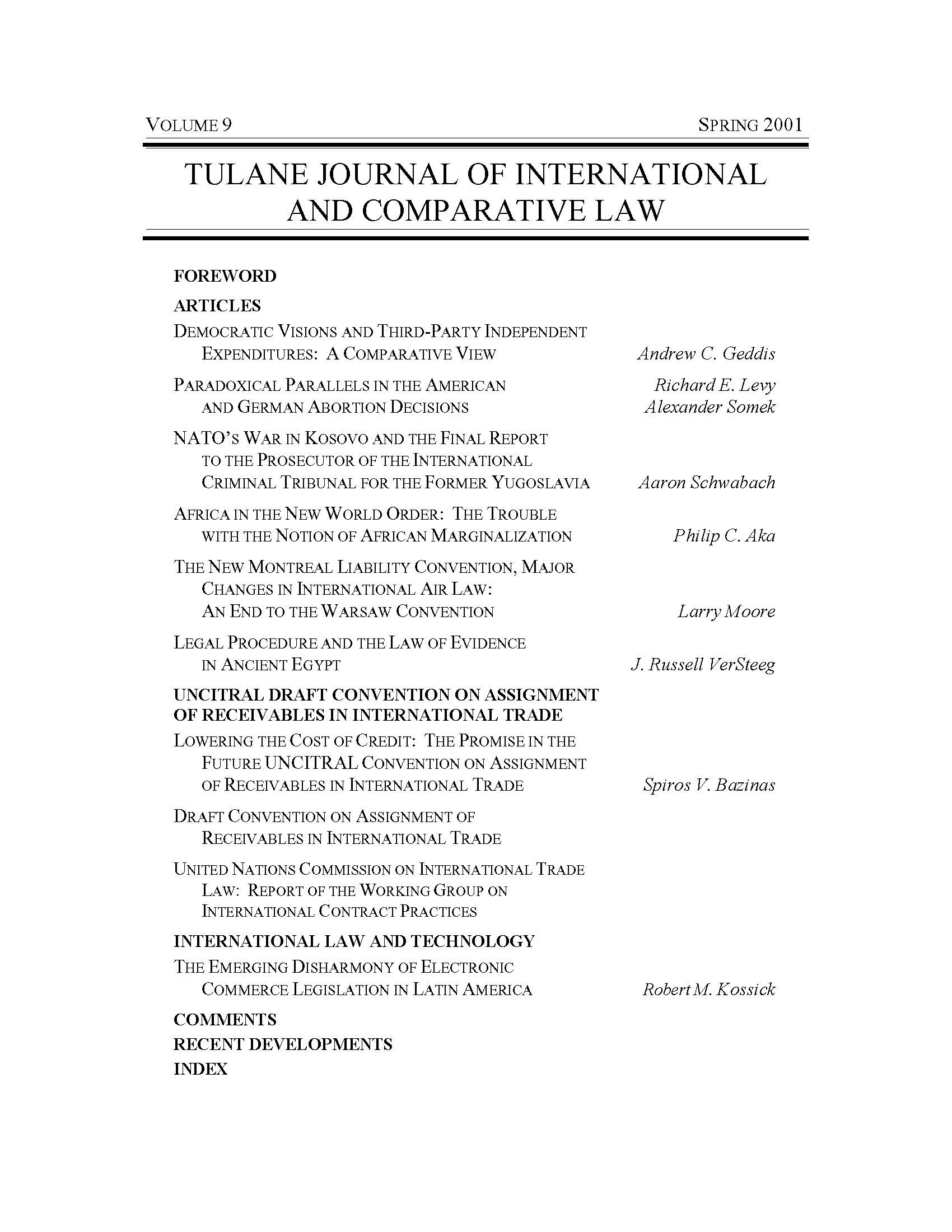Lowering the Cost of Credit: The Promise in the Future UNCITRAL Convention on Assignment of Receivables in International Trade
Abstract
The UNCITRAL Convention on Assignment of Receivables in International Trade is about to be finalized by UNCITRAL this year. The Convention will apply to international assignments and to assignments of international receivables. Internationality is based on the location of parties and location is defined by reference to the place of business and, in the case of multiple places of business of the assignor and the assignee, their place of central administration. For the Convention to apply, the assignor needs to be located in a State party to the Convention.
The Convention deals with outright transfers of receivables, including outright transfers for security purposes. It also deals with the creation of security rights in receivables. Receivable is defined broadly to include payment rights arising from any contract. Included are trade receivables, consumer receivables and sovereign receivables. Excluded are receivables arising from financial contracts or instruments e.g. swaps, derivatives etc.) deposit accounts and letters of credit. The Convention deals mainly with property issues (effectiveness and priority). It also deals with some contractual issues (representation etc.) by way of default rules applicable in the absence of an agreement between the parties.
In particular, the Convention validates assignments of future receivables and bulk assignments. It also validates assignments made despite anti-assignment clauses without defeating the contractual effect of the anti-assignment agreement as between the assignor and the debtor of the assigned receivable. Furthermore, the Convention refers priority to the law of the assignor’s place of central administration, i.e., to a single and easily determinable jurisdiction and to one that is most likely to be the place of the main insolvency proceeding with respect to the assignor. In an optional annex, the Convention also contains substantive law priority rules for States that wish to modernize their laws in this regard to chose from. The Convention contains also independent conflict-of-laws rules that are applicable irrespective of whether the assignor or the debtor is located in a State party to the Convention.
